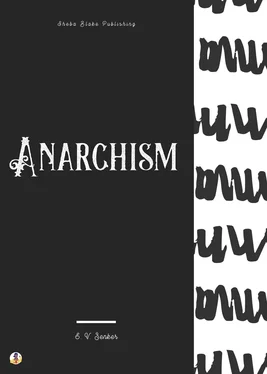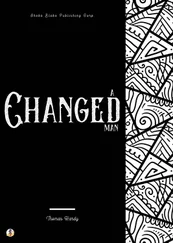Sheba Blake - Anarchism
Здесь есть возможность читать онлайн «Sheba Blake - Anarchism» — ознакомительный отрывок электронной книги совершенно бесплатно, а после прочтения отрывка купить полную версию. В некоторых случаях можно слушать аудио, скачать через торрент в формате fb2 и присутствует краткое содержание. Жанр: unrecognised, на английском языке. Описание произведения, (предисловие) а так же отзывы посетителей доступны на портале библиотеки ЛибКат.
- Название:Anarchism
- Автор:
- Жанр:
- Год:неизвестен
- ISBN:нет данных
- Рейтинг книги:4 / 5. Голосов: 1
-
Избранное:Добавить в избранное
- Отзывы:
-
Ваша оценка:
- 80
- 1
- 2
- 3
- 4
- 5
Anarchism: краткое содержание, описание и аннотация
Предлагаем к чтению аннотацию, описание, краткое содержание или предисловие (зависит от того, что написал сам автор книги «Anarchism»). Если вы не нашли необходимую информацию о книге — напишите в комментариях, мы постараемся отыскать её.
Anarchism — читать онлайн ознакомительный отрывок
Ниже представлен текст книги, разбитый по страницам. Система сохранения места последней прочитанной страницы, позволяет с удобством читать онлайн бесплатно книгу «Anarchism», без необходимости каждый раз заново искать на чём Вы остановились. Поставьте закладку, и сможете в любой момент перейти на страницу, на которой закончили чтение.
Интервал:
Закладка:
[8] “Cette liberté commun est une consequence de la nature de l’homme. Sa première loi est de veiller à sa propre conservation, ses premiers soins sont ceux qu’il se doit à lui-même: et sitôt qu’il est en âge de raison, lui seul étant juge des moyens propres à le conserver, devient par là son propre maitre.”— Rousseau.
So we see how the upholders of the social contract are separated into a Right, Central, and Left party. At the extreme right stands Hobbes, whom the defenders of Absolutism follow; in the centre is Locke, with the Republican Liberals; and on the extreme left stand the pioneers of Anarchism, with Hooker the ecclesiastic at their head. But of all the theoretical defenders of the “social contract,” only one has really worked out its ultimate consequences. William Godwin, in his Inquiry concerning Political Justice ,[9] demanded the abolition of every form of government, community of goods, the abolition of marriage, and self-government of mankind according to the laws of justice. Godwin’s book attracted remarkable attention, from the novelty and audacity of his point of view. “Soon after his book on political justice appeared,” writes a young contemporary, “workmen were observed to be collecting their savings together, in order to buy it, and to read it under a tree or in a tavern. It had so much influence that Godwin said it must contain something wrong, and therefore made important alterations in it before he allowed a new edition to appear. There can be no doubt that both Government and society in England have derived great advantage from the keenness and audacity, the truth and error, the depth and shallowness, the magnanimity and injustice of Godwin, as revealed in his inquiry concerning political justice.”
[9] London, 1795, 2 vols.
* * *
Our next business is to turn from theoretical considerations of the =contrat social= to the practice based upon this catchword; and to look for traces of Anarchist thought upon the blood-stained path of the great French Revolution—that typical struggle of the modern spirit of freedom against ancient society. We are the more desirous to do this, because of the frequent and repeated application of the word Anarchist to the most radical leaders of the democracy by the contemporaries, supporters, and opponents of the Revolution. As far as we in the present day are able to judge the various parties from the history of that period,—and we certainly do not know too much about it,—there were not apparently any real Anarchists[10] either in the Convention or the Commune of Paris. If we want to find them, we must begin with the Girondists and not with the Jacobins, for the Anarchists of to-day recognise—and rightly so—no sharper contrast to their doctrine than Jacobinism; while the Anarchism of Proudhon is connected in two essential points with its Girondist precursors—namely, in its protest against the sanction of property and in its federal principle. But, nevertheless, neither Vergniaud nor Brissot was an Anarchist, even though the latter, in his Philosophical Examination of Property and Theft (1780), uttered a catchword, afterwards taken up by Proudhon. At the same time, they have no cause and no right to reproach the “Mountain” with Anarchist tendencies.
[10] Jean Grave says in his book, La Société Mourante , p. 21: “In the year 1793 one talked of Anarchists. Only Jacques Roux and the ‘ suragés ’ appear to have been those who saw the Revolution most clearly, and wished to turn it to the benefit of the people; and, therefore, the bourgeois historian has left them in the background; their history has still to be written; the documents buried in archives and libraries are waiting for one who shall have time and courage to exhume them, and bring to light the secrets of events that are to us almost incomprehensible. Meanwhile, we can pass no judgment on their programme.” Of course we can do so still less.
Neither Danton nor Robespierre, the two great lights of the “Mountain,” dreamed of making a leap into the void of a society without government. Their ideal was rather the omnipotence of society, the all-powerful State, before which the interests of the individual were scattered like the spray before the storm; and the great Maximilian, the “Chief Rabbi” of this deification of the State, accordingly called himself “a slave of freedom.” Robespierre and Danton, on their side, called the Hebertists Anarchists. If one can speak of a principle at all among these people, who placed all power in the hands of the masses who had no votes, and the whole art of politics in majorities and force, it was certainly not directed against the abolition of authority. The maxims of these people were chaos and the right of the strongest. Marat, the party saint, had certainly, on occasion, inveighed against the laws as such, and desired to set them aside; but Marat all the time wanted the dictatorship, and for a time actually held it. The Marat of after Thermidor was the infamous Caius Gracchus Baboeuf, who is now usually regarded as the characteristic representative of Anarchism during the French Revolution—and regarded so just as rightly, or rather as wrongly, as those mentioned above. Baboeuf was a more thorough-going Socialist than Robespierre; indeed he was a Radical Communist, but no more. In the proclamation issued by Baboeuf for the 22d of Floreal, the day of the insurrection against the Directoire, he says: “The revolutionary authority of the people will announce the destruction of every other existing authority.” But that means nothing more than the dictatorship of the mob; which is rejected in theory by Anarchists of all types, just as much as any other kind of authority. That the followers of Baboeuf had nothing else in view is shown by the two placards prepared for this day, one of which said, “Those who usurp the sovereignty ought to be put to death by free men,” while the other, explaining and limiting the first, demanded the “Constitution of 1793, liberty, equality, and universal happiness.” This constitution of 1793 was, however, Robespierre’s work, and certainly did not mean the introduction of Anarchy.
Echoes and traditions of Baboeuf’s views, often passing through intermediaries like Buonarotti, are found in the Carbonarists of the first thirty years of our own century, and applied to this (as to so many other popular movements) the epithet “Anarchical,” so glibly uttered by the lips of the people. But among the chiefs, at least, of that secret society that was once so powerful, we find no trace of it; on the contrary they declared absolute freedom to be a delusion which could never be realised. Yet even here, though the fundamental dogma of Anarchism is rejected, we notice a step forward in the extension of the Anarchist idea. It was indeed rejected by the members of that society, but it was known to them, and what is more, they take account of it, and support every effort which, by encouraging individualism to an unlimited extent, is hostile to the union of society as such. Thus we even find individual Carbonarists with pronounced Anarchist views and tendencies. Malegari, for instance, in 1835, described the raison d’être of the organisation in these words[11]: “We form a union of brothers in all parts of the earth; we all strive for the freedom of mankind; we wish to break every kind of yoke.”
[11] J. A. M. Brühle: Die Geheimbunde gegen Rom. Zur Genesis der italien. Revolution. Prague, 1860.
Between the time when these words were spoken and the appearance of the famous What is Property? and the Individual and his Property , there elapsed only about ten years. How much since then has been changed, whether for better or worse, how much has been cleared up and confused, in the life and thought of the nations!
Читать дальшеИнтервал:
Закладка:
Похожие книги на «Anarchism»
Представляем Вашему вниманию похожие книги на «Anarchism» списком для выбора. Мы отобрали схожую по названию и смыслу литературу в надежде предоставить читателям больше вариантов отыскать новые, интересные, ещё непрочитанные произведения.
Обсуждение, отзывы о книге «Anarchism» и просто собственные мнения читателей. Оставьте ваши комментарии, напишите, что Вы думаете о произведении, его смысле или главных героях. Укажите что конкретно понравилось, а что нет, и почему Вы так считаете.












